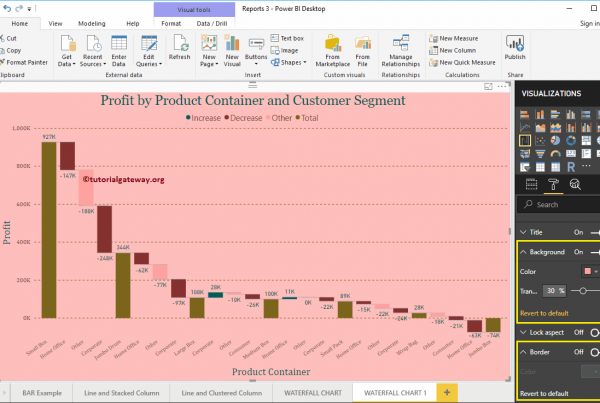A Email service provider (ESP), refers to a company that provides automated sending of emails as part of email marketing. Email service providers offer their customers a technical infrastructure and, optionally, a software tool with a graphical user interface to manage the sending of emails in a simple manner. quantitative and qualitative. These are bulk email software and hardware, or an agency that absolutely accompanies or manages email marketing.
Regular informational newsletters, mailings and email marketing campaigns are run using ESP. Along with the technical infrastructure for sending emails, this usually includes data log management, prepared email templates, [Tracking Pixel | Tracking]], as well as multiple reporting and analysis procedures to get the most out of it. the efficiency of email campaigns from an economic point of view. There are several email service providers, which differ greatly in terms of portfolio. Some service providers also offer options to choose, segment, and test various versions of email.
General information
Email marketing continues to be one of the most important tools for customer loyalty and sales promotion. Spending on email marketing has grown by about 10% each year in recent years, according to Forrester.[1] . The current development of this type of communication with customers is mainly due to the smartphone sector. For example, about a third of the recipients of newsletters and mailings open them with their iPhone. [2]
Email service providers play a fundamental role for this purpose, since they provide the infrastructure necessary to deliver email messages in large quantities to the different devices of the recipients. Especially since this medium is one of the most profitable alternatives,
- to get in touch with interested customers,
- increase customer loyalty,
- to generate leads and sales for companies
- and permission marketing, direct marketing, and dialogue marketing.
Quality criteria for email service providers
Since most ESPs offer the same basic functionality, to ensure that the correct ESP is selected, advertisers must be attentive to certain quality characteristics, that a good ESP must meet.
- Make sure that the emails are legally compliant with the CAN-SPAM legislation regulations.
- Manage the email database based on unsubscribe, bounce, and spam requests.
- Offer strategic and creative consulting.
- Guarantee the maximum security of the data.
- Maximum deliverability: ESPs vary greatly in email deliverability, which is critical to the success of an email marketing campaign. Advertisers must ensure that ESP can provide high deliverability.
Types of email service providers
Email service providers differ not only in their service, but also usually in the infrastructure used and in their spam control measures. The following types of email service providers provide a first orientation:
- SMTP relay provider: SMTP relays are used every time an email is sent outside of your own address range, even in private communications. In the case of mass emails or mass mailings, SMTP relays are third-party providers that can exclude spam through authentication, licenses, and their own network. This means that email servers do not classify certain emails originating from that server as spam. Sometimes SMTP relays are used in conjunction with an API, which automatically reads customer data and provides reports[3][4].
- Dedicated email service provider: Like dedicated servers, dedicated email service providers are designed to use their own infrastructure. The servers are used exclusively for sending emails. The advantage is that dedicated systems can enjoy high status due to their closed infrastructure and can be effective in fighting spam. Dedicated systems usually provide additional features such as records management or email delivery to a variety of server systems, such as PHP, ASP.NET, or Java. Using an API, mass emails can be automated. The technical resources used are for this case on the supplier side.[5]
- Web-based services / email marketing in the cloud: Cloud services in the area of email marketing provide their web-based resources for sending mass emails. An interface is normally included, which can be used by all workers in the company. Clients of cloud email services typically use them as software as a service across the enterprise and pay monthly fees. This means that using cloud email services is associated with relatively little effort and a high level of planning.
- Integrated marketing platform: Some marketing programs and tools offer integrated solutions that allow marketing, web analytics and other functions to send mass emails. These solutions are usually designed for use in large companies. The prices are correspondingly higher, because the functionality is partly very high. Multi-channel marketing, data-driven marketing, and IOT apps can be part of the portfolio.
Practical relevance
The large number of ESP providers offers decision makers a wide variety of options. Small and medium-sized enterprises (SMEs) and large corporations differ significantly in their requirement profiles. A selection of possible quality criteria for ESPs:[6][7]
- The administration of the data sets is feasible. Filtering, targeting and segmentation alternatives are also included in the portfolio.
- Templates can be created and edited.
- It offers an infrastructure that works as a sending engine and handles the mass sending of email templates.
- Opt-outs are automatically updated. The opt-ins are integrated according to the legislation.
- Metrics such as open rate, delivery rate, or click-through rate are collected and the data is displayed in reports.
- Tests can be performed to establish whether emails are retrieved from clients and server variants.
- Various measures are taken for spam control and quality assurance.
- Different types of MIME are supported. It is feasible to change emails dynamically, for example in the context of target group characteristics or seasonal campaigns.
- Additionally, there are aspects such as a free trial stage, monthly contracts or various payment options, so that the costs match the client's requirements. Because some ESPs will set a limit on emails, others will bill based on the number of data sets or sending frequencies.
Legal issues
Depending on the country in which the email service providers and their clients are active, they should be observed very different legal conditions and requirements. For the US, the Acceptance Use Policy and the CAN SPAM Act should be mentioned. In Europe, the conditions for mass mailing are specified in Directive 2002/58 / EC (Data protection directive for electronic communications). Email service providers can also participate in other industry initiatives to help combat spam.
Relevance for online marketing
Many online marketers rely on the services of email service providers, even if critics have usually predicted the end of email marketing due to the development of spam. The figures for the sector speak for themselves. Email service providers are still useful and profitable when sending emails to customers in large quantities. The return on investment in email marketing is approximately $ 44 for a $ 1 investment.[8] Emails can have an impact on sales by precisely sending specific purchase incentives for each target group and relevant recommendations to a wide range of recipients. Therefore, the choice of an email service provider can be considered a critical factor.
Web Links
- What is an ESP?
- How to select the right Email Service Provider
- Complete list of email service providers






